
-
Find the right food for your petTake this quiz to see which food may be the best for your furry friend.Find the right food for your petTake this quiz to see which food may be the best for your furry friend.Featured products
 Perfect Digestion Small & Mini Adult Dog Food
Perfect Digestion Small & Mini Adult Dog FoodHill's Science Plan Perfect Digestion Small & Mini Adult Dog Food with Turkey is a complete premium pet food for small breed adult dogs aged 1–6 years. This deliciously smooth mousse is precisely balanced to deliver the appropriate amount of energy and to support digestive health in adult, small breed dogs.
Shop Now Perfect Weight Small & Mini Adult Dog Food
Perfect Weight Small & Mini Adult Dog FoodHill's Science Plan Adult Small & Mini Dog Food with Turkey is a complete premium pet food for adult small dogs from 1 year old that are prone to weight gain or slightly overweight. This deliciously smooth mousse is formulated to deliver the appropriate amount of energy to support weight maintenance in adult dogs.
Shop Now Hypoallergenic Small & Mini Adult Dog Food
Hypoallergenic Small & Mini Adult Dog FoodHILL'S SCIENCE PLAN Hypoallergenic Small&Mini Adult dog food with Salmon is complete pet food for adult small dogs 1–6 years old. It's formulated for dogs with delicate skin and stomach, with limited high quality novel protein sources & no grain.
Shop NowFeatured products Urinary Health Adult Cat Food with Chicken
Urinary Health Adult Cat Food with ChickenHill's Science Plan Urinary Health Adult Cat Food with Chicken supports the health of the whole urinary system. Suitable for sterilised cats.
Shop Now Sterilised Mature Adult Cat Food
Sterilised Mature Adult Cat FoodHill's Science Plan Sterilised Cat Mature Adult Cat Food with Chicken is specially formulated with ActivBiome+ Multi-Benefit Technology. It is a precisely balanced nutrition tailored to meet the needs of mature adult sterilised cats, ages 7+, and to promote graceful ageing.
Shop Now Oral Care Adult Cat Food
Oral Care Adult Cat FoodHill's Science Plan Oral Care Adult Cat Food with Chicken contains clinically proven kibble technology to reduce plaque & tartar build up.
Shop Now -
Dog
- Dog Tips & Articles
-
Health Category
- Weight
- Food & Environmental Sensitivities
- Urinary
- Digestive
- Joint
- Kidney
-
Life Stage
- Puppy Nutrition
- Adult Nutrition
- Senior Nutrition
Cat- Cat Tips & Articles
-
Health Category
- Weight
- Skin & Food Sensitivities
- Urinary
- Digestive
- Kidney
-
Life Stage
- Kitten Nutrition
- Adult Nutrition
Featured articles Develop your gut instinct | Hill's Pet
Develop your gut instinct | Hill's PetDigestive disorders can affect any part of the digestive system, from the stomach, small intestine and through to the large intestine.
Read More Tips For Mixing Wet And Dry Pet Food
Tips For Mixing Wet And Dry Pet FoodDiscover tips for mixing wet and dry pet food to ensure balanced nutrition and variety for your pet. For comprehensive feeding advice, visit Hill's Pet UK.
Read More Virtual Vet Visits: What You Need to Know
Virtual Vet Visits: What You Need to KnowLearn the ins and outs of a televet appointment before you talk to a vet online.
Read More -


It's not just humans: cats can get dementia, too. Unfortunately, cats that are lucky enough to live a long life may experience some level of cat dementia, also known as cognitive dysfunction syndrome (CDS), cat senility or brain ageing. Although dementia in cats shares similar behaviour patterns with human dementia, the actual process in the brain is different. Senior cats that appear to be confused could be experiencing something more than just old age.
Older cats: a new field of study
Feline dementia is a tricky problem and may be under-diagnosed, under-treated and misunderstood due to the fact that cats are such subtle communicators. Now that cats are living longer than ever before, diagnoses are becoming more and more common. Cats with dementia show signs similar to humans with senile dementia or Alzheimer's disease.
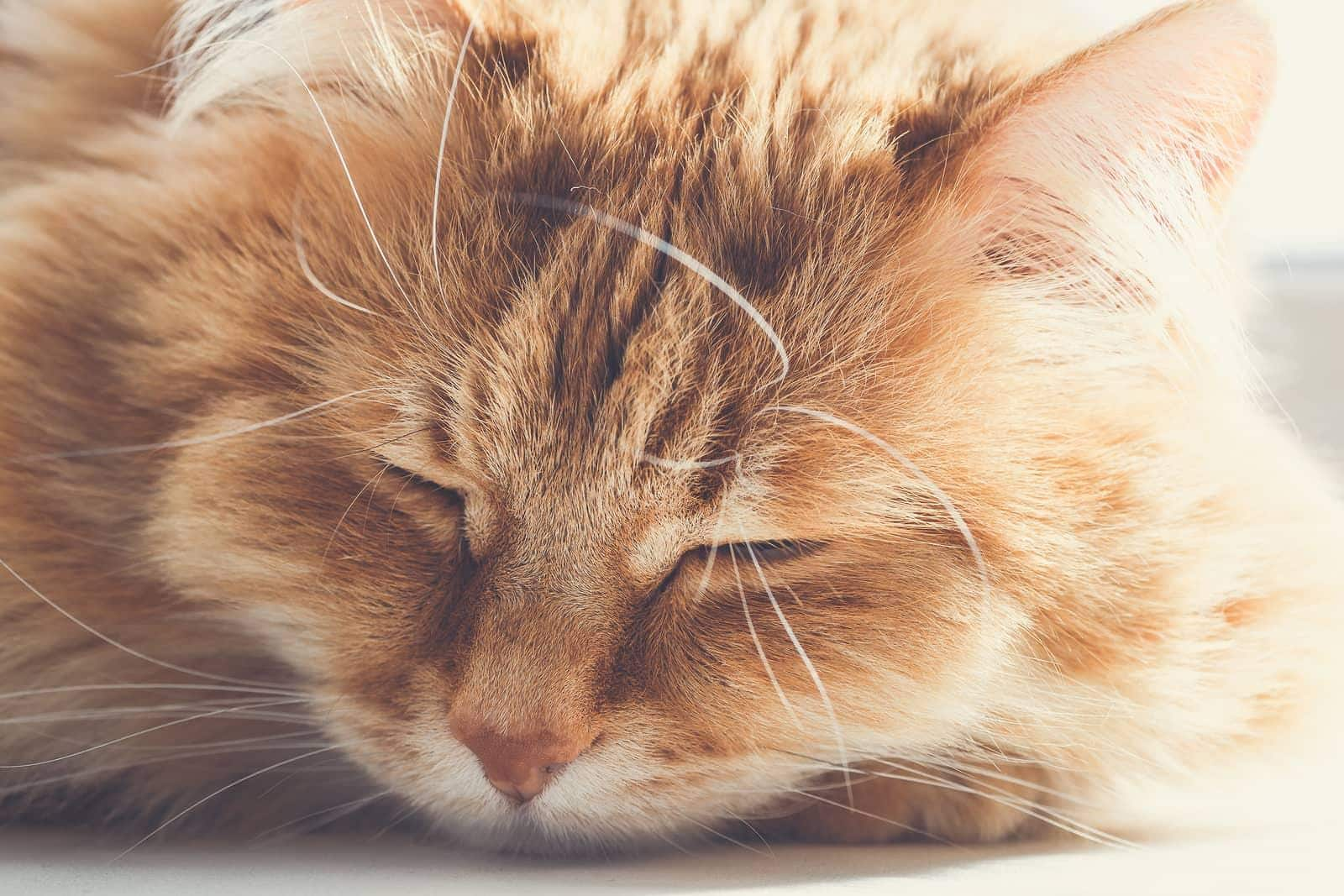
The signs of dementia in cats
Like any other organ, the brain deteriorates with age. The ageing feline brain often starts to show signs of wear and tear between the ages of 10 to 15, after which these signs may seem to accelerate as the disease progresses and the signs become more noticeable.
The typical signs of cat dementia include:
Generalised disorientation, which can include confusion about where they are, aimless wandering and missing cues associated with scheduled events like feeding time.
Reduced activity and decreased interest in play.
Changes in the sleep-wake cycle (remaining awake throughout the whole night and sleeping all through the day, heedless of human activity).
Reduced interest in food, water, feline housemates and human interaction.
Going to the toilet outside the litter box.
Vocalising (meowing loudly, especially at night).
Research is ongoing regarding feline dementia. Is feline dementia attributable to a specific neurological disorder? Is it identical to the process observed in people? Can it be treated?


Tasty Tips
Is it feline dementia or another condition?
There are a variety of senior diseases with signs similar to those of feline dementia. Since they tend to occur during the same stage of life, a thorough evaluation by a veterinarian is warranted to ensure that your cat receives the proper treatment and care. It’s always better to catch things early!
Hyperthyroidism
An overactive thyroid gland that produces too much thyroid hormone is a common disorder diagnosed in older cats. An excess of thyroid hormone can interfere with organ function and may even damage the brain, explains International Cat Care. One sign is increased appetite, so you may notice your cat begging for food incessantly. It can also lead to hyperactivity and increased vocalisation, which could be confused with dementia. Your veterinarian will want to perform a blood test to check out your cat's thyroid function.
Hypertension
Cats can get high blood pressure, too. According to Cats Protection, it usually happens as a result of another health condition like kidney disease or hyperthyroidism. High blood pressure can lead to blindness and result in anxiety and confusion. Your veterinarian can take a blood pressure reading to help rule this out.
Deafness and sensory decline
Deaf cats don't know their own meow volume. This can factor into your cat's behaviour, much like it does with older people who tend to become more disoriented when auditory cues in the environment become less perceptible to them. In much the same way, blindness will also contribute to an older cat's confusion.
Osteoarthritis or other causes of chronic pain
It's really hard to identify pain in cats since most cats don't express pain or discomfort in the same way humans and dogs do. Most choose to hide their discomfort as a survival mechanism. However, older cats who suffer from painful conditions like osteoarthritis may be more hesitant to step into the litter box due to discomfort and may have accidents outside the litterbox. They may also be less active and unwilling to play.
Brain tumours or other neurological conditions
Brain tumours are a possibility for older cats who show signs of dementia. Tumours can lead to seizures and collapse, but all kinds of abnormal behaviour such as incoordination or reacting to 'invisible' objects are suspect, too. Many other neurological diseases can also lead to signs similar to those seen in cats with dementia.

How to support a cat with dementia
Any senior cat with signs of dementia should ideally be tested for all the diseases that can mimic or accompany it. If your cat is suffering from feline dementia or confusion, here's what you can do to keep them safe and comfortable:
Keep them indoors if this won’t cause them stress and be aware of roaming. If they do want to go outside it may be best to try to cat-proof your garden. This way, they can still have the freedom to explore and get the benefits of going outside, without the worry of them getting lost.
Maintain a regular feeding and home lighting schedule to help keep them oriented.
Avoid major household changes (such as adopting a new pet or moving). Try to keep furniture in the same place.
Give them food with vitamin E and antioxidants, both important nutrients for brain health. Your vet will be able to recommend which one.
Using puzzle-feeders can help to stimulate the brain and may help slow the decline.
You can try plug-in pheromones. They can help reduce anxiety in older cats that are suddenly a little unsure of their surroundings.
Make litter boxes extra-accessible with a ramp or a shallow tray. Use comfortable litter.
Offer simple senior cat niceties like extra beds and accessible warm spots.
See your vet for regular care.
It's critical for any cat who shows any signs of dementia to see a veterinarian as soon as possible. It's important for pet parents to know that their cats may not be "just getting old" — they may be experiencing a true disease that requires a little extra care. Because it's not as easy to determine if your cat is confused as it is in humans, understanding your cat's normal behaviour is an essential first step in diagnosing and managing cat dementia.


Dr. Patty Khuly is an award-winning veterinarian known for her independent thinking, her spirited pet advocacy, her passion for the veterinary profession, and her famously irreverent pet health writing.
Dr. K is an honors graduate of both Wellesley College and the University of Pennsylvania School of Veterinary Medicine. She received her MBA at The Wharton School of Business as part of the prestigious VMD/MBA dual-degree program. She now owns Sunset Animal Clinic, a veterinary practice in Miami, Florida.
Related products

Hill's Science Plan Oral Care Adult Cat Food with Chicken contains clinically proven kibble technology to reduce plaque & tartar build up.

Hill's Science Plan Sterilised Cat Mature Adult Cat Food with Chicken is specially formulated with ActivBiome+ Multi-Benefit Technology. It is a precisely balanced nutrition tailored to meet the needs of mature adult sterilised cats, ages 7+, and to promote graceful ageing.

Hill's Science Plan Urinary Health Adult Cat Food with Chicken supports the health of the whole urinary system. Suitable for sterilised cats.
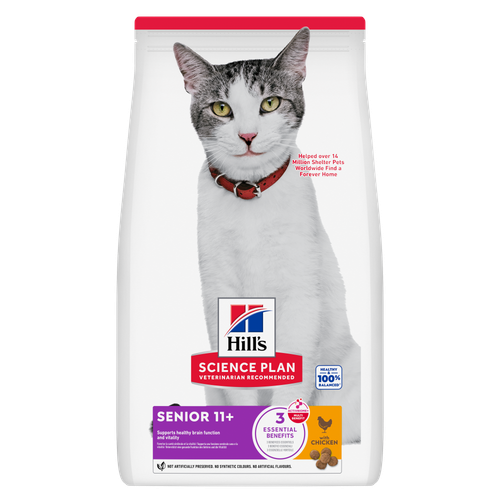
Hill's Science Plan Senior Cat Food with Chicken is a complete pet food, specially formulated with ActivBiome+ Multi-Benefit Technology.
This food supports healthy aging during the golden years. Contains a special ingredient blend to help keep older cats agile, more alert & interactive.
Related articles
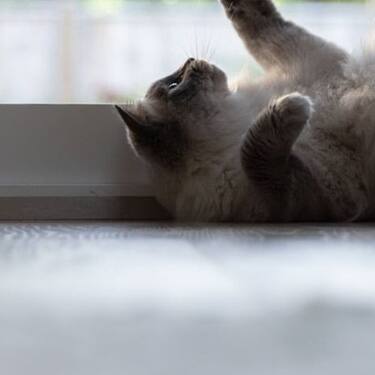
Feeding time can be a wonderful bonding opportunity for you and your cat. Find out how to make the most of it and create a healthy habit with HIll's Pet UK.
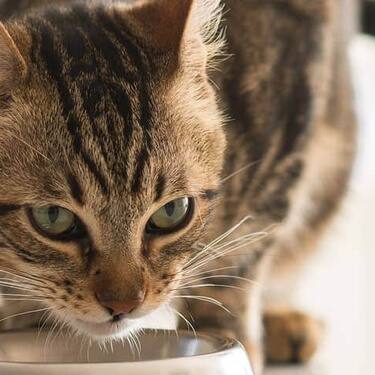
Discover what you can do to spot and support a sensitive cat stomach. See what routines and food you can implement to help your cat be happy and healthy.
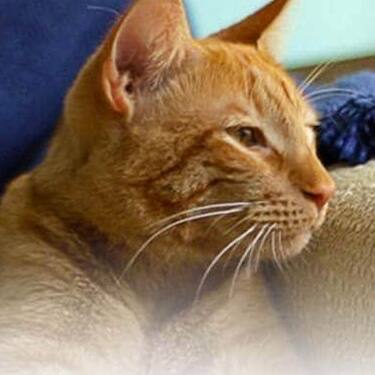
Find the right Hill
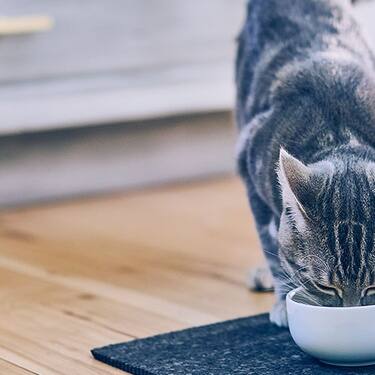
Good nutrition is about the right balance of nutrients. Learn more about health issues when feeding a cat food that has an improper nutritional balance from your friends at Hills Pet Nutrition.

Put your cat on a diet without them knowing
Our low calorie formula helps you control your cat's weight. It's packed with high-quality protein for building lean muscles, and made with purposeful ingredients for a flavourful, nutritious meal. Clinically proven antioxidants, Vitamin C+E, help promote a healthy immune system.
Put your cat on a diet without them knowing
Our low calorie formula helps you control your cat's weight. It's packed with high-quality protein for building lean muscles, and made with purposeful ingredients for a flavourful, nutritious meal. Clinically proven antioxidants, Vitamin C+E, help promote a healthy immune system.

